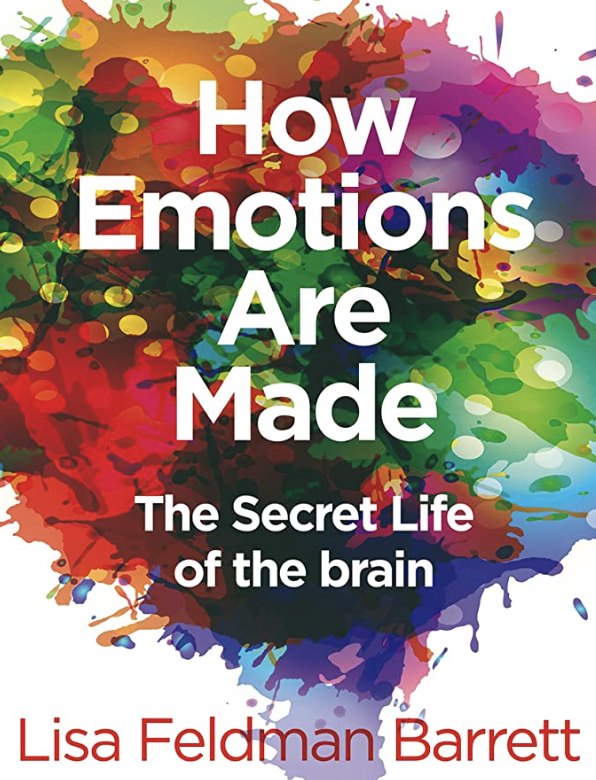should I meditate when angry, sad or stressed? how?
Meditation can be a useful tool for managing anger, as it can help you calm down and gain perspective on the situation. However, whether or not you should meditate when angry depends on the individual and the situation. In some cases, meditation may not be the best option when you're feeling angry, especially if your anger is intense and you're struggling to control your emotions. It may be best to wait until you've calmed down before attempting the practice.
BUT HOW DO I DO THAT?
It happened to me last week. I received pretty upsetting news on top of a pretty mentally stressful week at work. I have seen how many people just decide to move on or keep busy and that’s ok. At the end of the day, you have to be in line with your conviction and do what works best for you and if that’s your happy place, by all means go there when you need to. For me, what works is facing the emotion first, other actions like trying to find the silver lining or showing only hopeful emotion, feels phony and in a way like I am just putting a band-aid on a deeper issue that actually requires immediate attention or release so I can make sure it is fully tackled. Regardless of your approach, just make sure it is truly serving you and your loved ones equaly, preferable with the hep of a professional if that’s whats needed. Sometimes we make mistakes too or perhaps our approach is not the best and that’s something to remember because its part of our humanity and that’s ok.
In any case, the mindset centered around emotional release can be perceived as the opposite of someone who loves practices like meditation or yoga, especially because there is a general perception about praising only positive emotions, so we feel like failing when we show our true colors, or the colors the situation calls for! The reality is: such perception is nothing more than that: perception. It is also not realistic, it is a very one-dimensional way of existing, and it is not sustainable.
How Emotions Are Made: The Secret Life of the Brain" by Lisa Feldman Barrett challenges the idea that emotions are innate and universal responses to stimuli. Instead, Barrett argues that emotions are constructed by the brain based on past experiences, context, culture, and personal beliefs, and are embodied throughout the entire body.
Personally, maybe 10-15 yrs ago I would choose to go over my physical and mental boundaries as a way to exist, sacrifice, right? very honorable in our society. In the present day, truly taking the personal seriously and make it more of a priority, just like work was/still is is where I prefer to be. That realization made me think about anger/stress and how it relates to the every-day life of someone who is interested in personal growth through meditation.
for the level-headed human … DON’T NEGLECT BREATHING
If you naturally lean tours a more quiet and level-headed approach, breathing can be key before entering the meditation practice when stressed. Mobile apps like Headspace have incredible resources you can use to manage your breathing before going to your meditation center. They have a 5-minute long Breathing Into Stress session that is quite wonderful. In case you don’t have the app yet, below is another option (…and no, I don’t do any sponsorships, I recommend what I read and believe only, so this is another personal recommendation)
The great thing about breathing is: we do it all the time, so we don’t have a special set up to make it happen. If you can’t use Youtube or Headspace, you can simply try a popular practice a friend of mine introduce me to: Breathe for a count of 4, hold for a count of 4 and then release for a count of 4 again. Repeat until you find a safe place to anchor yourself and move on.
Deep breathing is an effective technique for calming anger because it helps to regulate the body's nervous system. When we're angry, our bodies go into fight or flight mode, which can cause physical and emotional tension. Deep breathing can help to activate the parasympathetic nervous system, which is responsible for the body's rest and relaxation response. This relaxation response can help to reduce the intensity of anger/stress, and make it easier to manage our emotions. Deep breathing also helps to increase oxygen flow in the body, which can reduce stress and anxiety.
By taking slow, deep breaths, we can focus our attention on the present moment and become more aware of our thoughts and feelings. This mindfulness can help us to recognize and accept our emotions, without getting overwhelmed by them.
EFFECTS OF BREATHING ACCORDING TO EXPERTS
What I write encompasses personal experience, and research based on your questions during sessions or online. When looking for info, I like discovering the expert opinion of people with different life experiences and points of views. Below, a little study about the effects of diaphragmatic breathing from the faculty of Psychology at the Beijing Normal University.
This study investigated the effect of diaphragmatic breathing on cognitive function, affect, and cortisol responses to stress. Forty participants were randomly assigned to either a breathing intervention group (BIG) or a control group (CG). The BIG received intensive training for 20 sessions over eight weeks, while the CG did not. The study found that diaphragmatic breathing led to a significant decrease in negative affect and increased sustained attention in the BIG group compared to the CG. The BIG also showed a significantly lower cortisol level after training, while the CG showed no significant change in cortisol levels. The study provides evidence for the potential benefits of diaphragmatic breathing in improving mental function and has important implications for health promotion in healthy individuals. Participants were recruited from an IT company in Beijing, China and were screened for physical health problems and mind-body training experience.
As you can see, a practice that sometimes feels too ethereal, can have components proven to be scientific based! I think that’s beautiful, so on that note, I would love it if you send me things you read sometimes so I can share it on the platform. The idea is we can all learn together.
FAN OF EMOTIONAL RELEASE? THERE IS AN OPTION FOR YOU TOO
If on the contrary you are more like me, (a fan of confrontational therapy over CBT), releasing the anger or stress might be the right thing to do. You need to be mindful to what type of practice you choose, before entering meditation if breathing is not the one for you.
Arthur Janov was a California psychotherapist variously called a messiah and a mountebank for his development of primal scream therapy — a treatment he maintained could cure ailments from depression and alcoholism to ulcers, epilepsy and asthma. It is important to note primal theraphy is not so popular anymore, his studies are from the 60’s-70’s so take in consideration the societal landscape and belief system back then. It is also said, this type of therapy has been criticized by many in the mental health field for its lack of scientific evidence and potential for harm if not conducted properly. Arthur said neurosis is caused by repressed pain of childhood trauma so releasing it with a basic reaction to emotion could be part of the solution.
While all of this could be true for some, screaming as a form of release goes beyond primal theraphy and its effect could very well benefit people equipped to take it. This is the moment were I have to remind you: I am not a mental health professional, if you are thinking about ANY type of meditation or mental health practice, you should seek the help of a professional. I am not liable or responsible.
In any case, scream teraphy is also popular in other cultures. To give you an example an university in Sweden recently adopted a tradition where students are encouraged to scream every night at 10 pm. They call this the flogsta scream in honor to the neighborhood where it started. Supposedly, this has helped tremendously with academic stress and we all know the happy index of nordic and scandinavian countries…. just saying they appear to have it a little more together than most when it comes to balancing mental health while keeping humble, healthy and financially stable… so interesting read.
Simply put, endorphins are activated when screaming and they interact with receptors in the brain that produces a positive feeling in the body. Very simple. Now, there are other ways that might be less taxing like running, talking to someone you trust and of course: breathing.
The thing is, screaming (if done properly) can help you detach from the situation you are facing and producing stress so you can enter a space of silence on a better note. I found this website call Flow where the author expands their research about scream meditation. I will include on on the Two Things I Read Today series but I thought the subject was pretty interesting. More information about the flogsta scream can be found here at the wonderful website Atlas Obscura
THE THIRD OPTION… MAYBE JUST…MEDITATE
I get it, how can I be upset and then go meditate? Why am I not a walking budha? Well, because you are human and the entirety of your experience contributes to your growth in a way or another, even the most uncomfortable moments. So if you're able to acknowledge and accept your anger, and you feel like you're in a state of mind where you can focus and concentrate, then going right into meditation might be the right answer. You can try mindfulness meditation (we have done it a couple of sessions with body scans to deal with anxiety, stress and distractions). These type of meditation involves paying attention to your thoughts and emotions without judgment, and allowing them to pass by without reacting to them. This can help you gain insight into your anger and sadness and develop more control over your emotional reactions.It is up to you to decide if you want to meditate when you're upset. It's important to listen to your body and mind, and to choose the techniques that work best for you.
It is important to note we need to be flexible with ourselves too. Our needs and tolerance change over time and depending on the situation so accepting that without judgement is precisely what meditation is all about. There will be times when something completely different from what you are used to is what is going to feel (and probably be) appropriate. This IS normal and part of the human experience.
If Mindfulness Makes You Uncomfortable, It’s Working
“While mindfulness can lead us to experience the good things in life more fully, this only tells half of the mindfulness story. In fact, becoming truly mindful and aware means that we are also able to see, name, and more fully experience things when we are angry, sad, jealous, anxious, vulnerable, or lonely — this, too, is mindfulness” - Amy Jen Su
To close this very long post that took me a while to write, I want to leave you with this very insightful HBR article that taps into the uncomfortable. The author of the article argues that mindfulness should not be equated with "good feeling" emotions, such as joy and relaxation, but with the capacity to sit with the full spectrum of emotions, including the negative ones, and to learn to be less reactive. She offers two stories about leaders, Randy and Natalie, to illustrate the connection between mindfulness and making better leadership choices. One of them explains how after practicing meditation she was actually feeling less relaxed. Randy and Natalie both cultivated mindfulness by observing themselves in action, tracking their patterns, noticing, naming, and pausing before reacting. I hope you like this read as much as I did and again, feel free to join the conversion and send me things you read and I would like to share with the community!
We are the Cambridge Meditation Group and we meet every Friday at The Foundry Cambridge from 5:15-6:00 pm for secular meditations. You can get in touch by calling me at 617.840.3711, via IG @cambridgemeditationgroup or email at maria@cambridgemeditationgroup.com.
The Foundry is located at 101 Rogers Street, Cambridge, MA, 02142 and our registration link for Friday meditations can be found here
Have a great meditation session :)
Much love,
Mari

















